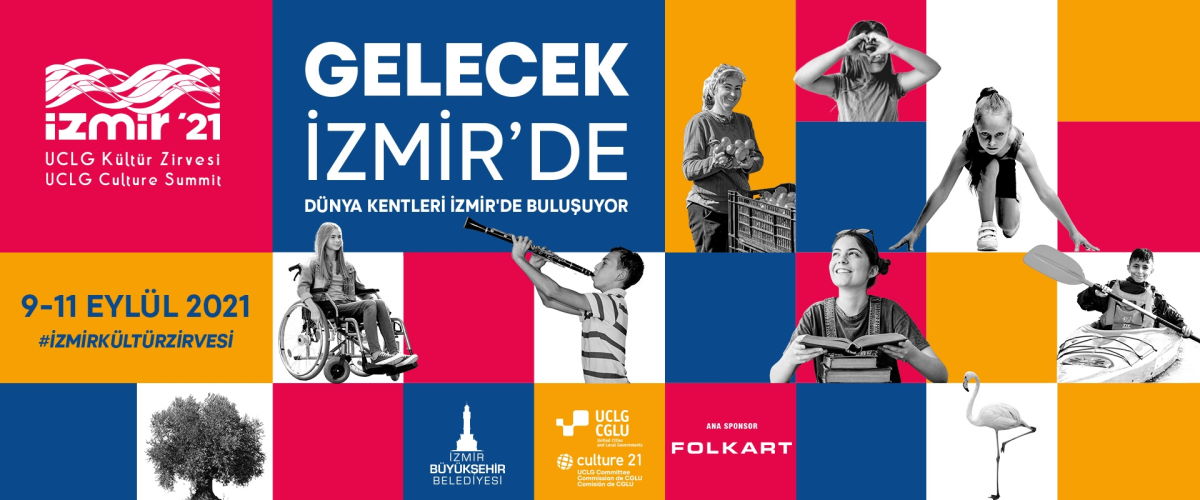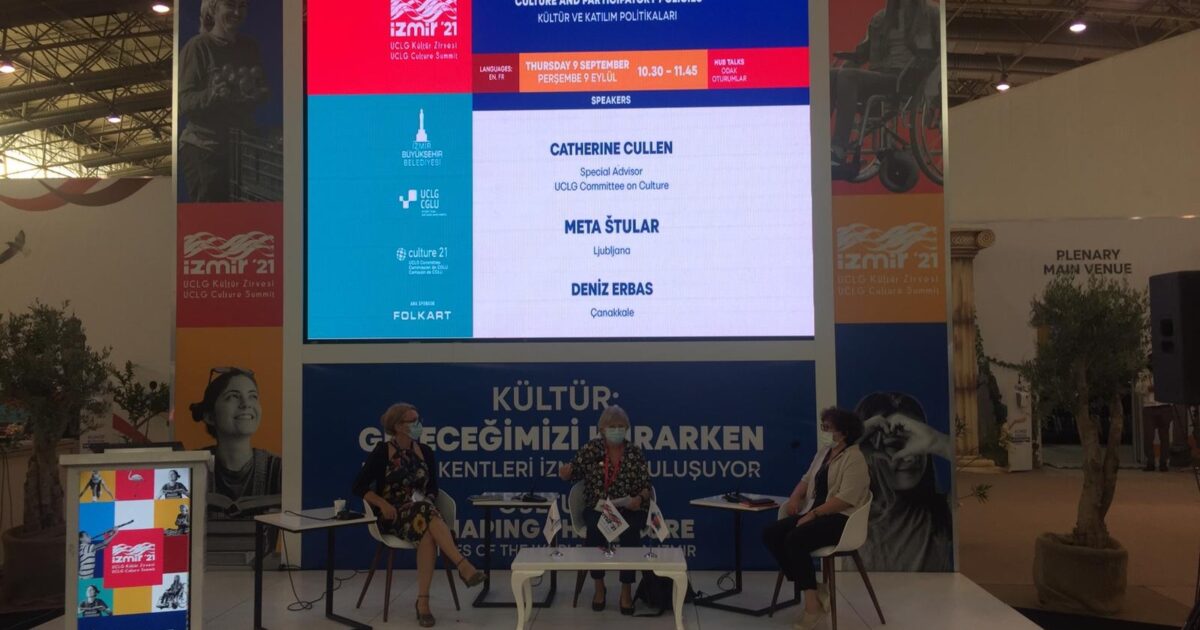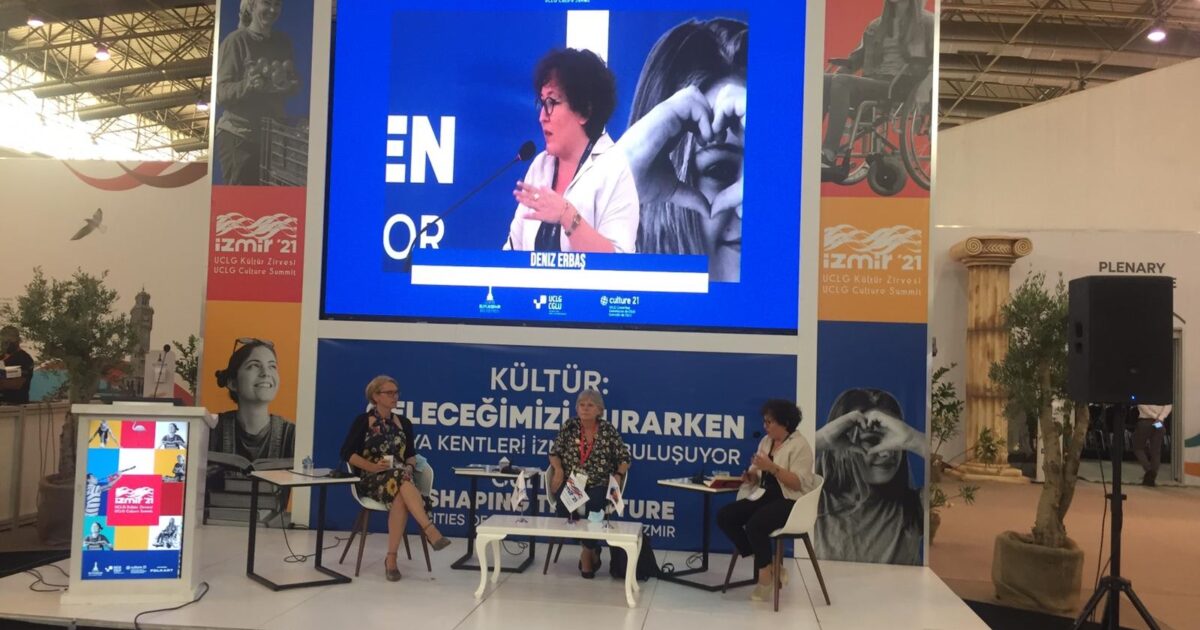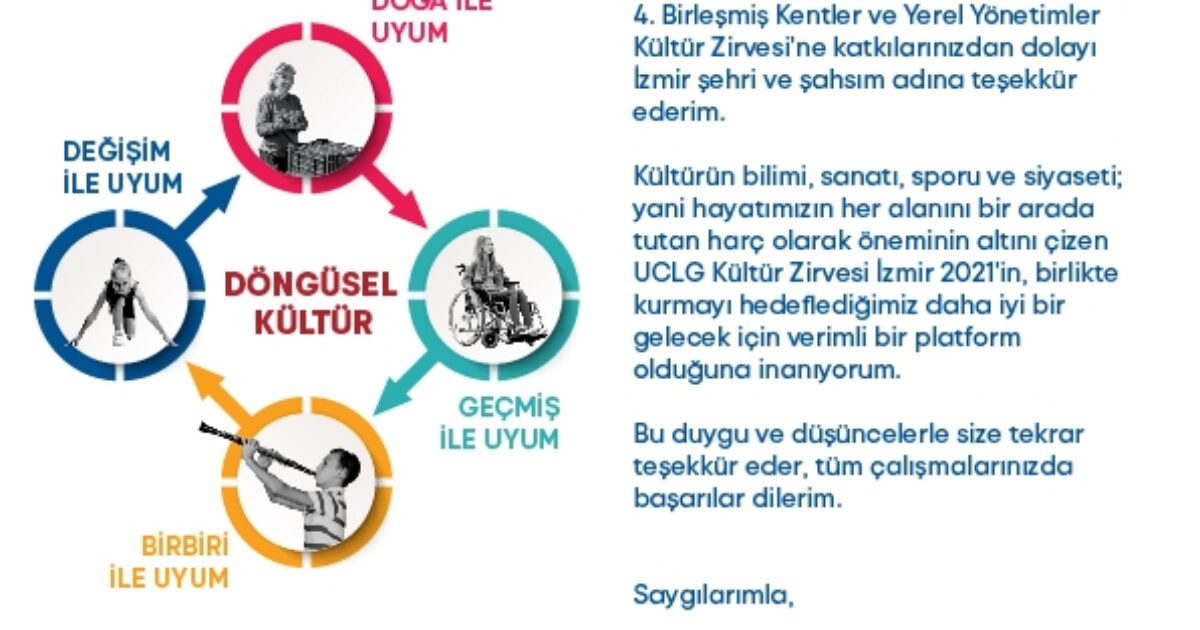Izmir'21 UCLG Culture Summit
The 4th UCLG Culture Summit took place between 9-11 September, hosted by Izmir Metropolitan Municipality. Deniz Erbaş from CABININ made a presentation on participatory models of Çanakkale civil society in the focus session on “Participatory Practices” on the first day of the summit. In the session moderated by Catherine Cullen, Special Advisor to the UCLG Cultural Committee, Meta Štular has also introduced the Rog Center Creative Hub model from Ljubljana. The “Çanakkale 2010” Project, which opened the city's cultural policy for discussion through culture-focused events spanning a year with a participatory model, was selected as one of the best international examples by UCLG (United Cities and Local Governments Organization) ten years ago. Changes in the culture-oriented civil society structure of the city of Çanakkale in the last 10 years were open to discussion with questions from the participants.
The Culture Summit held in İzmir was marked by the demands, expectations and practices for adding participation in culture as a fourth value to the three pillars summarized as economic development, social participation and environmental balance within the scope of the United Nations' 2030 sustainable development goals. In the Izmir declaration titled “Culture Builds the Future of Humanity” published at the end of the summit, the basic importance of culture and the responsibilities of local governments in this context were emphasized in achieving the 2030 sustainable development goals:
“The Summit has shown to the world that “another culture is possible”, with “circular culture” as a new concept composed by Harmony with nature, Harmony with the past, Harmony with each other and, last but not least, Harmony with change. The climate crisis is the result of the assumption that humanity is in a constant battle with nature. In fact, nature is not only a resource. We need to learn, very fast, how-to live in harmony with nature and all species. Harmony with the past is essential: it is not possible to design the future of culture without understanding the cultures that lived before us. Harmony with each other needs to be a reality: it refers to democracy in every moment of life, and inclusivity as the key principle to secure equal citizenship, strengthened by our appreciation of nature-rights. Harmony with change needs acknowledgement: we must ensure that cultural evolution is nourished by both the creativity of young generations and the inspiration from nature.”



